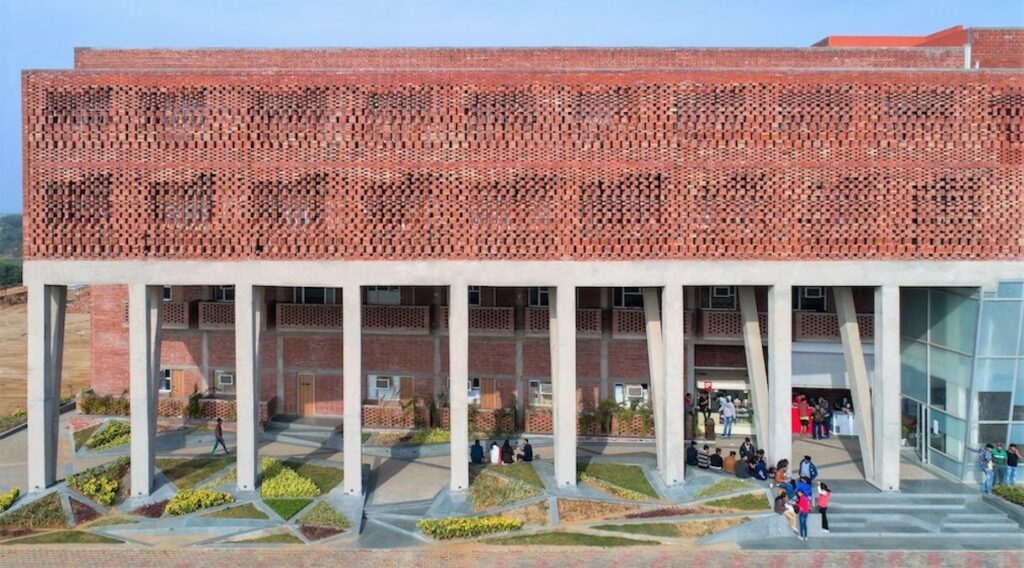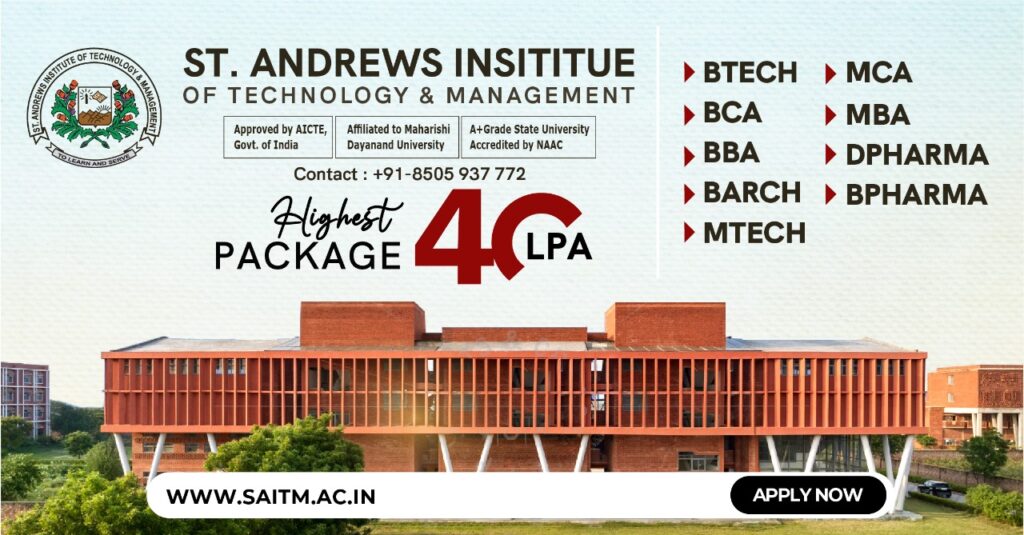Key Differences Between Computer Science and Computer Engineering
Key Differences Between Computer Science (CS) and Computer Engineering (CE):
Focus
- CS: Primarily focuses on software, algorithms, programming, and theoretical aspects of computing.
- CE: Integrates both hardware and software, focusing on the design and development of computer systems and their components.
Curriculum
- CS: Emphasizes software development, data structures, algorithms, artificial intelligence, machine learning, and databases.
- CE: Combines computer science courses with electrical engineering, covering topics like circuit design, integral systems, microprocessors, and hardware-software integration.
Skills
- CS: Strong in programming, algorithm design, data analysis, software engineering, and computational theory.
- CE: Skilled in hardware design, integral systems, VLSI design, digital logic, and system integration.
Career Paths
- CS: Leads to roles such as application developer, data scientist, IT analyst, AI engineer, and cybersecurity expert.
- CE: Leads to roles such as systems engineer, integral systems engineer, network architect, and robotics engineer.
Tools and Technologies
- CS: Uses programming languages (Python, Java), software development tools (IDEs, version control), and data analysis frameworks.
- CE: Utilizes hardware description languages (VHDL, Verilog), CAD tools for circuit design, and microcontroller programming environments.
Research and Development
- CS: Focuses on new algorithms, software optimization, AI, and data science innovations.
- CE: Focuses on advancing hardware technology, improving system integration, and developing efficient embedded solutions.
Practical Applications
- CS: Software applications, web development, mobile apps, AI models, and data-driven solutions.
- CE: Designing and developing computer hardware, integral systems, IoT devices, and telecommunications infrastructure.
Some of the most opted courses in India and St. Andrews college or different Engineering college or Management colleges are as follows:-
Defining Computer Science and Computer Engineering

CS is the study of algorithms, data structures, programming, and theoretical foundations of computation. It encompasses software development, artificial intelligence, data analytics, and cybersecurity, focusing on creating and optimizing software solutions to solve complex problems and improve technology-driven processes.
Computer Engineering integrates electrical engineering and computer science principles to design and develop computer hardware and software systems. It covers topics like microprocessors, integral systems, and network architecture, focusing on creating and optimizing both physical components and software applications for improved technological solutions and device functionality.
Skills and Knowledge Required for CS:

CS encompasses a broad range of skills and knowledge areas, including:
Programming Languages
Proficiency in languages like Python, Java, C++, and JavaScript.
Algorithms and Data Structures
Understanding of efficient ways to store, manage, and process data.
Software Development
Knowledge of software design, development methodologies, and version control systems.
Database Management
Skills in SQL, NoSQL, and database design.
Computer Networks
Understanding of networking principles, protocols, and security.
Operating Systems
Knowledge of OS concepts, including process management and memory management.
Artificial Intelligence and Machine Learning
Basics of AI, ML algorithms, and data modeling.
Cybersecurity
Understanding of security principles, encryption, and threat mitigation.
Problem-Solving
Strong analytical and critical thinking skills for troubleshooting and optimizing code.
Mathematics
Knowledge of discrete mathematics, probability, and statistics for algorithm development.
Computer Engineering: Skills and Knowledge

Computer Engineering encompasses a diverse set of skills and knowledge areas, including:
Programming Languages
Proficiency in languages like C, C++, Python, and assembly language.
Hardware Design
Understanding of digital logic design, circuit theory, and microprocessor architecture.
Embedded Systems
Skills in designing and programming embedded systems, including firmware development.
VLSI Design
Knowledge of Very-Large-Scale Integration (VLSI) for designing complex integrated circuits.
Computer Networks
Understanding of networking principles, protocols, and hardware components.
Operating Systems
Knowledge of OS design, kernel programming, and real-time operating systems.
System Integration
Skills in integrating hardware and software components into cohesive systems.
Robotics and Automation
Understanding of robotics principles and automation techniques.
Problem-Solving
Strong analytical skills for troubleshooting hardware and software issues.
Electronics
Knowledge of analog and digital electronics, signal processing, and power management.
Top Colleges in India

Here are some of the top colleges for CSE include:
St. Andrews Institute of Technology & Management, Delhi NCR – Delhi, NCR
Indian Institute of Technology Delhi (IIT Delhi) – New Delhi
BITS Pilani (Birla Institute of Technology and Science) – Pilani, Rajasthan
Delhi Technological University (DTU) – New Delhi
National Institute of Technology Surathkal (NIT Surathkal) – Surathkal, Karnataka
Here are some of the top colleges for Computer Engineering in India:
St. Andrews Institute of Technology & Management, Delhi NCR – Delhi, NCR
Indian Institute of Technology Delhi (IIT Delhi) – New Delhi
BITS Pilani (Birla Institute of Technology and Science) – Pilani, Rajasthan
Delhi Technological University (DTU) – New Delhi
National Institute of Technology Surathkal (NIT Surathkal) – Surathkal, Karnataka
Vellore Institute of Technology (VIT) – Vellore, Tamil Nadu
Computer Science vs Computer Engineering
CS and CE are closely related fields but have distinct focuses and career paths:
Computer Science
- Focus: Primarily deals with software systems, algorithms, programming languages, and theoretical aspects of computing.
- Areas of Study: Includes topics like algorithms, data structures, artificial intelligence, machine learning, software engineering, and computer graphics.
- Career Paths: Software developer, software engineer, data scientist, computer scientist, artificial intelligence specialist, cybersecurity analyst, etc.
Computer Engineering
- Focus: Combines aspects of both computer science and electrical engineering, focusing on designing and developing hardware and software systems.
- Areas of Study: Includes digital systems design, computer architecture, integral systems, VLSI design, networking, and operating systems.
- Career Paths: Integral systems engineer, hardware engineer, computer scientist, computer engineer, network engineer, systems architect, FPGA engineer, etc.
Key Differences
- Computer Science tends to emphasize software development, algorithms, and theoretical aspects of computing.
- Computer Engineering integrates hardware and software aspects, focusing on designing and building computing systems.
Career Options

Career Options for Computer Science Graduates:
Software Developer/Engineer
Design, develop, and maintain software applications.
Data Scientist
Analyze and interpret complex data to help organizations make informed decisions.
Artificial Intelligence/Machine Learning Engineer
Develop algorithms and models for AI and machine learning applications.
Systems Analyst
Analyze and design technology solutions to meet business needs.
Cybersecurity Specialist
Protect systems and networks from cyber threats and vulnerabilities.
Database Administrator
Manage and optimize databases for efficient data storage and retrieval.
Web Developer
Create and maintain websites and web applications.
Mobile App Developer
Develop applications for mobile devices.
Cloud Computing Engineer:
Design and manage cloud-based systems and services.
IT Project Manager:
Oversee and coordinate technology projects within an organization.
Network Administrator
Manage and maintain computer networks.
DevOps Engineer
Bridge development and operations to improve deployment and delivery processes.
Game Developer:
Create and develop video games and interactive entertainment.
Research Scientist
Conduct research in computing theory, algorithms, and emerging technologies.
Technical Writer
Produce documentation and guides for software and technology products.
IT Consultant
Provide expert advice and solutions to businesses on technology-related issues.
Business Analyst
Analyze business processes and recommend technology solutions to improve efficiency.
Blockchain Developer
Develop and implement blockchain-based solutions and applications.
Computer Science Educator
Teach computer science concepts at educational institutions.
Career Options for Computer Engineering Graduates:
Embedded Systems Engineer
Computer engineering jobs involve designing and developing embedded systems for various applications.
Computer Engineer
Design and develop computer hardware components and systems.
Network Engineer
Design, implement, and manage computer systems and communication systems.
Firmware Engineer
Develop and optimize firmware for integral systems and devices.
VLSI Design Engineer
Design and develop Very-Large-Scale Integration (VLSI) circuits and systems.
System Architect
Design and integrate computer systems and components for specific applications.
Digital Design Engineer
Design digital circuits and systems using hardware description languages (HDLs).
Signal Processing Engineer
Develop algorithms and systems for processing signals in hardware.
Robotics Engineer
Design and develop robots and automation systems using hardware and software integration.
IoT Engineer
Develop and integrate Internet of Things (IoT) devices and systems.
Network Security Engineer
Design and implement security measures for computer systems and systems.
Telecommunications Engineer
Design and optimize telecommunications systems and networks.
Power and Energy Systems Engineer
Design and optimize power systems for computing and electronic devices.
Control Systems Engineer
Design and implement control systems for various applications.
Hardware Validation Engineer
Test and validate hardware designs to ensure functionality and performance.
Technical Support Engineer
Provide technical support and troubleshooting for hardware and systems.
Project Manager (in Engineering)
Coordinate and manage projects related to computer engineering and hardware development.
Research and Development Engineer
Conduct research and innovate new technologies in computer engineering and hardware.
Average Salary

Average Salary for Computer Science Graduates:
Entry-level positions (0-2 years of experience):
- Software Developer/Engineer: ₹4,92,000 – ₹7,38,000 per year
- Web Developer: ₹4,10,000 – ₹6,56,000 per year
- Data Analyst: ₹4,51,000 – ₹6,15,000 per year
Mid-level positions (2-5 years of experience):
- Data Scientist: ₹65,60,000 – ₹98,40,000 per year
- Software Engineer (mid-level): ₹65,60,000 – ₹90,20,000 per year
- Systems Analyst: ₹57,40,000 – ₹82,00,000 per year
Senior-level positions (5+ years of experience):
- Software Development Manager: ₹90,20,000 – ₹1,23,00,000+ per year
- Senior Data Scientist: ₹98,40,000 – ₹1,31,20,000+ per year
- Solutions Architect: ₹98,40,000 – ₹1,31,20,000+ per year
Average Salary for Computer Engineering Graduates:
- Hardware Engineer: ₹4,92,000 – ₹7,38,000 per year
- Integral Systems Engineer: ₹5,33,000 – ₹7,79,000 per year
- Firmware Engineer: ₹4,92,000 – ₹6,97,000 per year
Mid-level positions (2-5 years of experience):
- Network Engineer: ₹61,50,000 – ₹90,20,000 per year
- Systems Engineer: ₹65,60,000 – ₹98,40,000 per year
- VLSI Design Engineer: ₹65,60,000 – ₹98,40,000 per year
Senior-level positions (5+ years of experience):
- Senior Hardware Engineer: ₹82,00,000 – ₹1,23,00,000+ per year
- Senior Integral Systems Engineer: ₹90,20,000 – ₹1,31,20,000+ per year
- Technical Lead/Manager (Engineering): ₹98,40,000 – ₹1,47,60,000+ per year
FAQs
Which is better computer engineering or computer science?
Choosing between computer engineering and computer science depends on your interests and career goals. Computer engineering focuses on the design and development of hardware and software systems, blending electronics engineering with computer science principles.
It’s ideal if you’re interested in hardware, integral systems, or robotics. Computer science, on the other hand, emphasizes software, algorithms, and data arrangements, preparing you for roles in software development, data science, or AI.
If you enjoy programming, problem-solving, and theoretical aspects, computer science might be better. Both fields offer strong career prospects, so the best choice aligns with your personal interests and strengths.
Which is better, CS or CSE?
Choosing between Computer Science (CS) and Computer Science Engineering (CSE) depends on your interests and career aspirations.
CS primarily focuses on software, algorithms, and theoretical foundations of computing, preparing you for roles in application development, data science, and research. CSE combines CS with elements of electrical engineering, offering a broader curriculum that includes hardware, networking, and system design.
If you prefer a deeper dive into programming and software, CS might be better. If you’re interested in both hardware and software, and how they integrate, CSE could be a better fit. Both fields have strong career prospects and opportunities.
Who gets paid more, computer science or computer engineering?
Salaries for computer science (CS) and computer engineering (CE) professionals can vary based on factors like location, experience, and specific job roles.
Generally, both fields offer competitive salaries, with slight variations. CS professionals, especially those in specialized roles like data science, artificial intelligence, and software engineering, often have high earning potential.
Computer scientists working in hardware design, integral systems, and networking also command high salaries. On average, their earnings are comparable, but specific high-demand skills or industry needs can tip the scale in favor of one over the other. Ultimately, both fields offer lucrative career opportunities.
Is Computer Science and Computer Engineering same?
CS and Computer Engineering (CE) are related but distinct fields. CS focuses on the theoretical and practical aspects of computing, including algorithms, programming, application development, and data arrangements.
It’s more concerned with software and abstract computational concepts. CE, on the other hand, combines principles of computer engineering and CS, emphasizing the design and development of computer hardware and software systems.
Computer Engineering covers topics like integral systems, microprocessors, and hardware-software integration. Computer engineers are trained to design and develop both the hardware and software components of computing systems, ensuring seamless integration and optimal performance.
While there’s overlap, CS is more software-centric, and CE involves both hardware and software, catering to different interests and career paths.





